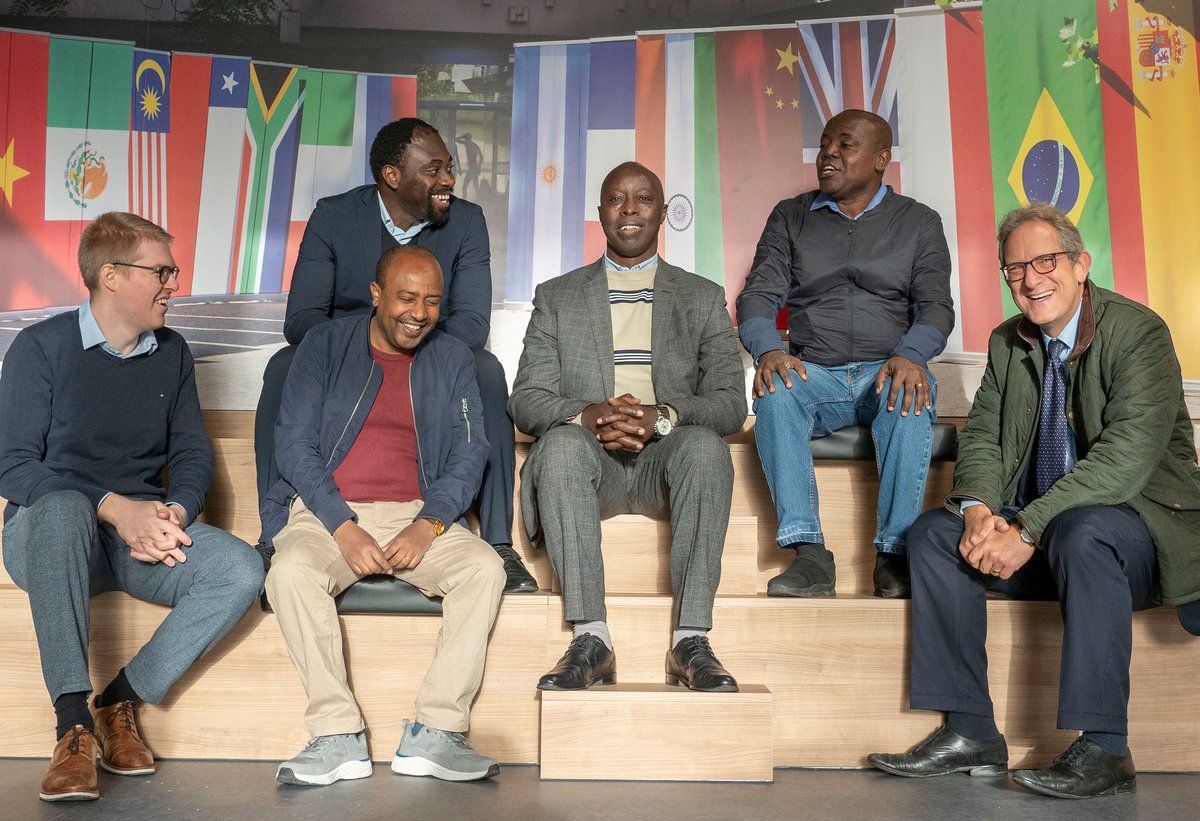1.4 million euros for research on Africa

The ‘Doing Business in Africa’ think tank team with visiting professors from African universities at a research workshop at ESB Business School.
The African continent is a future market for many German companies. Tapping into it poses challenges, particularly for SMEs. With his research group “Doing Business in Africa”, Professor Dr. Philipp von Carlowitz is investigating which strategies promise success. The think tank is now receiving 1.4 million euros over a period of four years from the Federal Ministry of Education and Research (BMBF).
“Our think tank ‘Doing Business in Africa’ is unique in Germany and enjoys a high level of international recognition”, says Philipp von Carlowitz, Professor of International and Strategic Management at ESB Business School, the business faculty at Reutlingen University. “What makes us unique in applied research is the pure corporate perspective with regard to African markets.” In recent years, his team has developed specific approaches and measures to help companies gain a foothold in African markets. Challenges for companies lie in the mostly difficult and very different business environment where the processes that work for Europe are not applicable. The new project addresses these challenges and develops promising approaches for business in Africa.
The funding flows into additional human resources and strengthens the national and international transfer of practical application and knowledge: lectures and events such as workshops and conferences are intended to prepare decision-makers in politics, business and civil society for business initiatives on the African continent. This is because greater involvement in the private sector generates positive development impulses in African countries.
Professor Dr Philipp von Carlowitz has also set himself a number of new research questions for the next four years. For example, he would like to investigate how companies can make informed decisions when entering the African market. When asked how the low income and high financing costs for doing business in Africa are dealt with, the Africa expert says: “One important aspect, for example, is the revenue model. Instead of selling their expensive products in a one-off payment, German companies could establish hire-purchase models in this price-sensitive market.” Von Carlowitz also considers the deployment of new technologies such as drones or blockchain to be useful for overcoming many operational challenges in African business. Innovation hubs, which serve as incubators for new business ideas and start-ups in many African countries, are an important topic for the local private sector. Among other things, the project examines the empowerment of women as founders and the promotion of business start-ups by marginalised groups in large cities.
“Doing Business in Africa” opens up a view of the African continent that goes beyond development aid. Professor Dr Philipp von Carlowitz believes that the image of Africa as a recipient of donations is outdated and discriminatory anyway. Instead, he recommends following the example of Italy, France or the Netherlands. “These countries rely much more heavily on the private sector as an ‘enabler’ of development cooperation. This benefits both sides: companies and people in Europe and Africa.”




